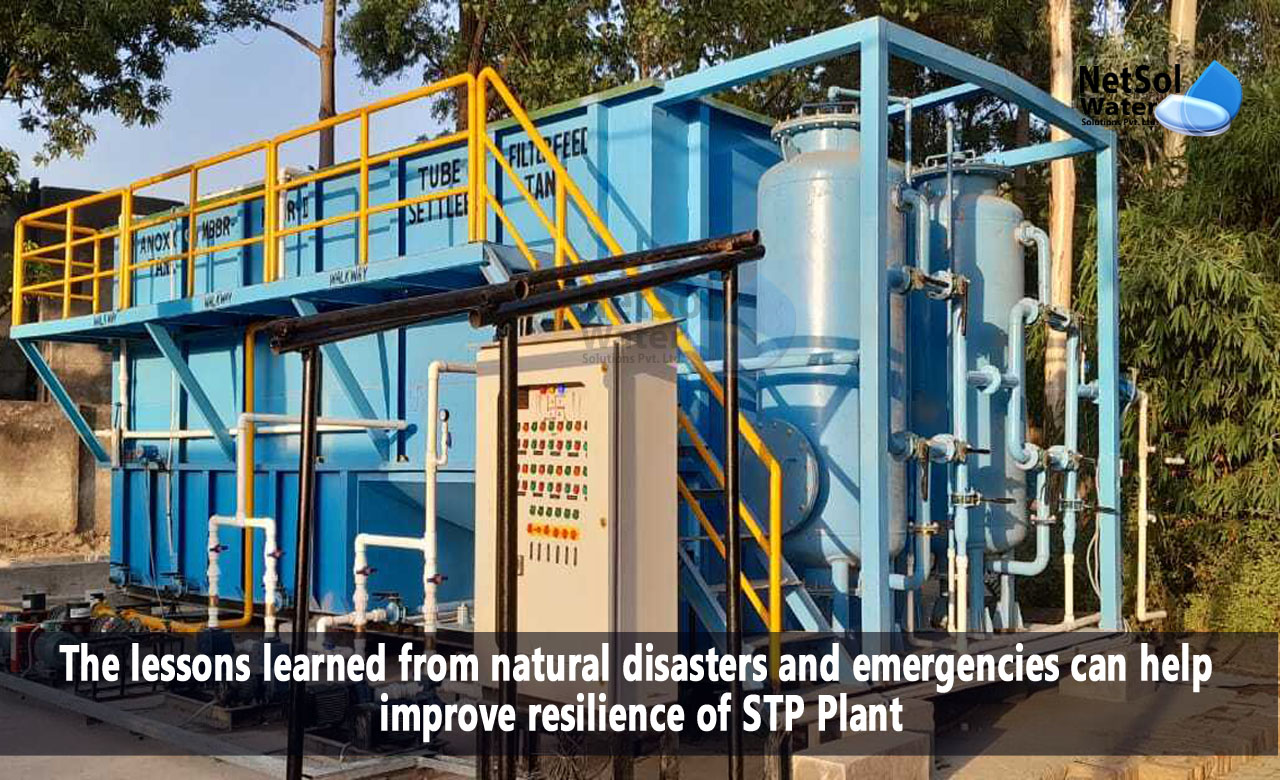STP Plant Resilience: Lessons from Natural Disasters and Emergency
Natural disasters and emergencies pose significant challenges to sewage treatment plants (STPs) and their ability to continue operating effectively. Events such as hurricanes, floods, earthquakes, or other unexpected incidents can disrupt the normal functioning of STPs and compromise their ability to treat wastewater safely. Building resilience in STPs is crucial to minimize the impact of such events and ensure the continuity of wastewater treatment services.
In this blog, we will examine the lessons learned from natural disasters and emergency responses that can help improve the resilience of sewage treatment plants.
Natural Disaster Lessons and Emergency Response:
1. Emergency Preparedness and Planning: Effective emergency response begins with comprehensive preparedness and planning. STPs should develop emergency response plans that outline protocols, roles and responsibilities, communication strategies, and contingency measures to be implemented during a crisis. Regular training and drills help ensure that staff are well-prepared to respond swiftly and effectively to emergencies.
2. Redundancy and Backup Systems: Incorporating redundancy and backup systems is essential for STP resilience. Redundancy involves having duplicate or backup equipment and processes to ensure continuity of operations in the event of a failure. Backup power generators, redundant pumps, and alternative treatment processes can help STPs maintain functionality during power outages or equipment malfunctions.
3. Flood Protection Measures: Flooding is a common risk for STPs, especially those located in low-lying areas or near water bodies. Implementing flood protection measures, such as levees, flood barriers, or pump stations, can help minimize the risk of flood-related damage and ensure the continuous operation of STPs during and after a flood event.
4. Remote Monitoring and Control: Remote monitoring and control systems allow STPs to monitor critical parameters, such as flow rates, water levels, and equipment status, from a centralized location. These systems enable operators to detect issues in real-time, make informed decisions, and remotely adjust operations if needed, reducing the need for on-site presence during emergencies.
5. Collaborative Partnerships: Collaboration with local emergency management agencies, government entities, and neighboring STPs is essential for effective emergency response. Sharing resources, information, and expertise during crises can enhance the resilience of STPs and ensure coordinated response efforts.
6. Communication and Public Outreach: During emergencies, communication with the public becomes paramount. STPs should have established communication channels and protocols to providetimely updates, safety instructions, and information about service interruptions to the community. Public outreach initiatives before emergencies can also help raise awareness about the importance of wastewater management and the role of STPs during crises.
7. Lessons from Real-Life Examples:
· Hurricane Katrina (2005) highlighted the vulnerability of STPs to extreme weather events. Many STPs in the affected areas suffered significant damage, leading to wastewater spills and contamination. The disaster prompted a reevaluation of STP resilience and the implementation of stronger protection measures and backup systems in vulnerable regions.
· The 2011 earthquake and tsunami in Japan resulted in the loss of several STPs and extensive damage to others. The event emphasized the need for earthquake-resistant infrastructure, redundant systems, and improved emergency response planning in STPs located in seismically active regions.
Conclusion:
The resilience of sewage treatment plants is essential for maintaining wastewater treatment services during natural disasters and emergencies. Lessons learned from past events emphasize the importance of emergency preparedness, redundancy, flood protection measures, remote monitoring, collaboration, and effective communication. By implementing these strategies, STPs can enhance their ability to withstand and recover from crises, ensuring the continued protection of public health and the environment. Investing in STP resilience is a proactive measure that contributes to the overall resilience of communities and their ability to respond to and recover from unforeseen events.



